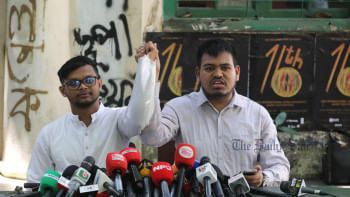Employers, trade bodies concerned over 20-member union proposal

Major trade bodies and the Bangladesh Employers' Federation (BEF) have voiced concern over a government proposal to allow only 20 individuals to establish an enterprise-level union, regardless of enterprise size, as part of amendments to the labour law aimed at aligning with international standards.
In a statement today, the BEF said it was alarming that new recommendations were being introduced despite earlier consensus among tripartite constituents, effectively sidelining both employers and workers.
"One such proposal, to allow only 20 individuals to establish an enterprise-level union irrespective of enterprise size, poses serious risks," the BEF said.
The federation, joined by major sectoral associations, reaffirmed its commitment to upholding labour rights and standards in line with international obligations.
However, it stressed that reforms must reflect Bangladesh's realities, industrial context, and institutional capacity, rather than external prescriptions.
The BEF noted that the Bangladesh Labour Act has undergone repeated amendments over the past two decades.
While recent dialogue produced consensus on over 90 percent of proposed changes under the roadmaps of the International Labour Organization (ILO) and the European Union, the constant cycle of revisions has left little scope to test their effectiveness on the ground.
Employers cautioned that such blanket provisions disregard industrial realities, expose enterprises to manipulation by external groups, threaten workplace stability, and undermine investor confidence.
Instead of strengthening trade unionism, they warned, these measures could lead to fragmentation and disorder, harming both employers and workers.
The statement also noted that workers themselves have expressed apprehensions, recognising that the proposed reforms do not address their real needs for security, welfare, and sustainable livelihoods.
Bangladesh's challenges, the BEF said, lie not in passing laws on paper but in ensuring the capacity of institutions and the workforce to enforce them. Weak labour inspection, under-resourced institutions, and ineffective monitoring remain major gaps.
The federation emphasised that meaningful reform requires investment in regulatory capacity, training, upskilling, and reskilling of workers and managers, alongside equipping officials with tools to enforce compliance.
Without addressing these fundamentals, repeated legal tightening will only create uncertainty, discourage investment, and risk instability in the labour market, it added.
Employers called upon the ILO and development partners to uphold tripartism and urged the government to steer the process pragmatically, protecting national interests while advancing credible labour rights.
Leaders of the Bangladesh Garment Manufacturers and Exporters Association, Bangladesh Knitwear Manufacturers and Exporters Association, Bangladesh Textile Mills Association, Bangladesh Tea Association, Leathergoods and Footwear Manufacturers and Exporters Association of Bangladesh, Bangladesh Jute Spinners Association, Bangladesh Jute Mills Association, Bangladesh Association of Pharmaceutical Industries, Bangladesh Association of Contact Centre and Outsourcing, and Bangladesh Agro-processors Association also expressed solidarity with the BEF.

 For all latest news, follow The Daily Star's Google News channel.
For all latest news, follow The Daily Star's Google News channel. 








Comments